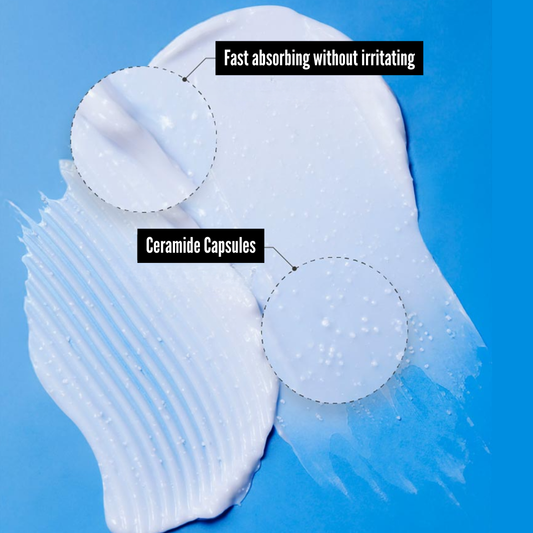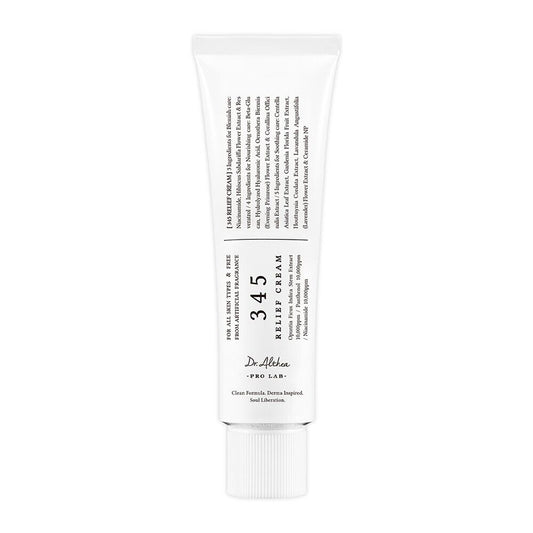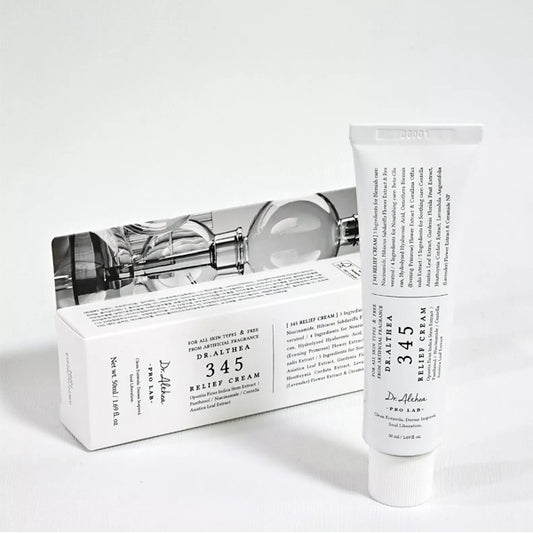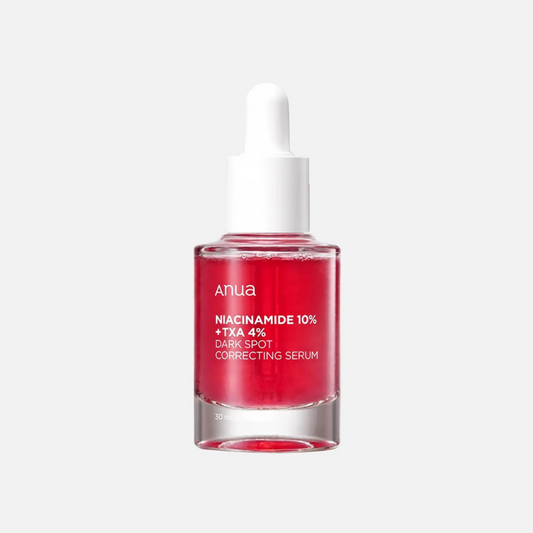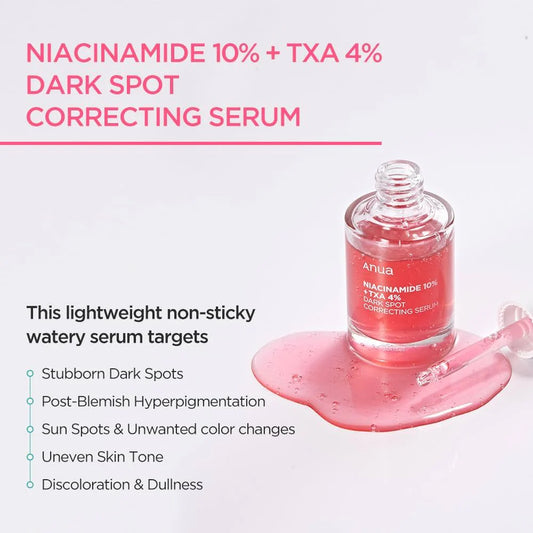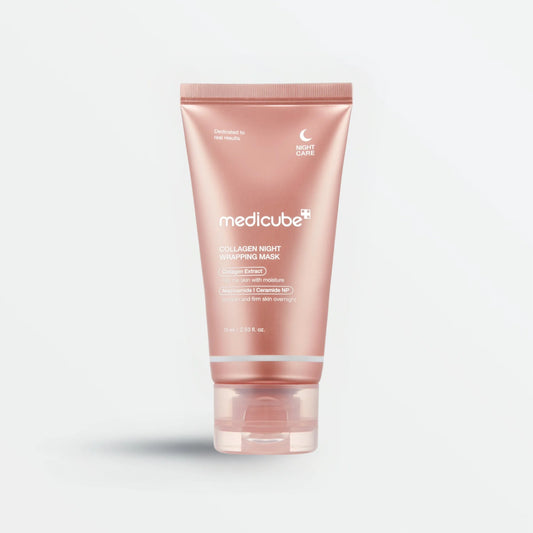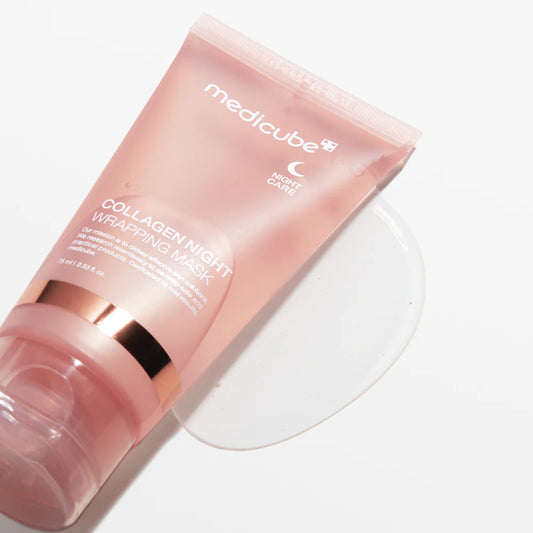
The Dos and Don'ts of Basic Skincare
Share
Understanding skincare can feel overwhelming with the sheer number of products and differing advice out there. Everyone's skin is unique, meaning what works for one person might not work for another. Do you need a specific moisturizer for oily skin? Is toner truly essential? What causes your skin to flare up? These are just some of the questions that can pop up when trying to build the perfect routine. That's exactly why we're here to help you navigate the world of skincare.
Below, we'll explore the essential do's and don'ts of a foundational skincare routine, covering everything from sun protection to the crucial role of sleep. Follow these guidelines to build a routine that truly benefits your skin.
The Essentials: What You Should Do for Healthy Skin
1. Hydrate from Within: Drink Plenty of Water

Your body is roughly 60% water, and when you're dehydrated, it shows—especially on your skin. The outermost layer of your skin, the epidermis, loses its elasticity and smooth texture without enough water. While studies haven't definitively linked increased water intake directly to improved skin appearance, staying hydrated is vital for your overall health and helps your body function optimally. Aim for the recommended eight glasses of water daily.[1]
2. Cleanse Regularly: Wash Your Face

After a long day, skipping your nighttime face wash might be tempting, but resist the urge! Washing your face, especially if you wear makeup, is non-negotiable. Throughout the day, your skin accumulates dirt, oil, and pollutants that can clog pores. Cleansing your face both in the morning and at night is crucial for removing these impurities and preventing breakouts[2]. However, be mindful not to over-wash, as this can strip your skin of its natural oils and lead to dryness[3].
3. Protect with SPF: Use Sunscreen Daily

We can't stress this enough: sunscreen is your skin's best friend. Beyond causing premature aging, overexposure to the sun's UV rays can lead to severe health consequences, including skin cancer. Sunscreen creates a barrier that blocks these harmful rays.
When choosing a sunscreen, look for one that is broad-spectrum (protecting against both UVA and UVB rays) and water-resistant. Aim for an SPF of 30 or higher and remember to reapply at least every two hours, or more frequently if you're swimming or sweating. Many moisturizers now include SPF, but always check the SPF level to ensure adequate protection[4].
4.Prioritize "Beauty Sleep": Get Enough Rest

There's a reason it's called "beauty sleep." Getting seven to eight hours of quality sleep each night allows your body to repair and regenerate, and this includes your skin. Insufficient sleep can manifest on your skin as breakouts, fine lines, inflammation, and under-eye bags. Prioritize your sleep to wake up to healthier, more revitalized skin.[5]
5. Fight Free Radicals: Incorporate Antioxidants

As you age, your body naturally produces less collagen, which can lead to a loss of skin elasticity and the appearance of wrinkles. This process is often accelerated by "free radicals," unstable molecules that damage skin cells. Incorporating antioxidants like Vitamins C and E, lycopene, and beta-carotene into your skincare routine can help neutralize free radicals and combat the visible signs of aging.[6]
6. Customize Your Routine: Consider Your Skin Type
A skincare routine is only effective if it's tailored to your unique skin. Using products that aren't suited for your skin type can disrupt its natural balance, potentially leading to issues like breakouts, inflammation, irritation, or premature aging. Take the time to understand your skin's specific needs, and remember that these needs can change due to factors like seasons, hormones, or age. Research ingredients and product formulations to make informed choices.
7. Lock in Moisture: Don't Forget to Moisturize
Moisturizer is a fundamental step in any skincare routine, regardless of your skin type. It helps keep your skin soft, supple, and healthy. Whether you have oily, dry, or combination skin, finding the right type of moisturizer for your specific needs is key to maintaining your skin's natural barrier and preventing issues like dryness or excessive oil production.
8. Optimize Absorption: Layer Products Correctly
Believe it or not, the order in which you apply your skincare products significantly impacts their effectiveness. Applying products in the wrong sequence can prevent proper absorption, meaning you won't get the full benefits. As a general rule, apply products from thinnest consistency to thickest consistency. This usually means starting with toners or essences, followed by serums, then lotions, and finally heavier creams or oils. Allow each product a few moments to absorb into your skin before moving on to the next step to prevent pilling and ensure maximum efficacy.[7]
The Pitfalls: What You Shouldn't Do to Your Skin
1. Resist the Urge: Don't Pop Pimples

It can be incredibly tempting to squeeze a pimple, but resist the urge! Popping pimples can introduce more bacteria into the area, leading to increased inflammation, infection, and potentially more acne. Worse, it can result in scabbing, hyperpigmentation, or even permanent scarring. It's always best to let pimples heal naturally or use targeted spot treatments.[8]
2. Don't Over-Exfoliate

Exfoliation is a vital step for removing dead skin cells and promoting cell turnover, which reveals fresh, healthy skin. However, too much of a good thing can be detrimental. Over-exfoliating, especially if you have sensitive skin, can lead to irritation, redness, and even damage your skin's protective barrier. Aim to exfoliate one to three times a week at most, allowing your skin ample time to recover between treatments.[9]
3. Don't Wash Your Face in a Hot Shower
While a hot shower might feel relaxing, direct exposure of your face to very hot water can be detrimental. Hot water strips your skin of its natural oils, leading to dryness, irritation, and even exacerbating conditions like rosacea. It can also cause capillaries to break. Always use lukewarm water when cleansing your face, ideally at the sink, to preserve your skin's delicate moisture barrier.[13], [14]
4. Don't Forget to Clean Your Devices

Think about how often your phone touches your face, or how long it's been since you cleaned your makeup brushes or pillowcase. These everyday items can harbor bacteria, dirt, and oils that transfer directly to your skin, leading to clogged pores and breakouts. Make it a habit to regularly clean your phone screen, wash your makeup brushes, and change your pillowcases to minimize the transfer of impurities to your skin.[10], [11], [12]
5. Don't Use Sheet Masks in the Bath
It might seem like the perfect self-care ritual, but applying a sheet mask while soaking in a hot bath can actually hinder its effectiveness. The heat and steam from the bath can cause the mask's essence to evaporate more quickly, preventing your skin from fully absorbing the beneficial ingredients. For best results, use sheet masks in a cooler, drier environment after your shower or bath, allowing the essence to deeply penetrate your skin[15].
Skincare doesn't have to be complicated or intimidating. By understanding these fundamental do's and don'ts, anyone can start building a routine that's effective and tailored to their needs. Your skin is your body's largest organ; treating it with proper care is an investment in your overall health and well-being.
References:
- [1] Skin Type Solutions. (2024). How Drinking Water Effects Skin Hydration. https://skintypesolutions.com/blogs/skincare/how-drinking-water-effects-skin-hydration
- [2] IV SITE - Ivanmed. (2023). The Benefits of a Daily Cleansing Routine. https://www.ivanmed.com/importance-of-cleansing/
- [3] Natural Bathe. (2022). Hot Water VS Cold Water which one is good for skin?. https://www.naturalbathe.com/post/the-remedies-that-made-us
- [4] PCA Skin. What is broad spectrum SPF?. https://www.pcaskin.com/blog/what-is-broad-spectrum-spf
- [5] Okanagan Skin Care Centre. (2023). Does Sleep Impact Skin Health?. https://okanaganskincare.ca/blog/Does+Sleep+Impact+Skin+Health/271
- [6] Journal of Drugs in Dermatology. Systemic Antioxidants and Skin Health. https://jddonline.com/articles/systemic-antioxidants-and-skin-health-S1545961612E0001X/
- [7] Cosmopolitan. (2025). Skincare routine order – the correct way to apply products. https://www.cosmopolitan.com/uk/beauty-hair/skincare/a29263234/correct-order-to-apply-skincare-products/
- [8] GoodRx. (2022). The Risks of Popping Your Pimples. https://www.goodrx.com/health-topic/dermatology/popping-pimples
- [9] CeraVe Australia. Over-Exfoliated Skin | Causes & Treatment. https://www.cerave.com.au/blog/dry-skin/over-exfoliated-skin
- [10] Kaplan MD Skincare. How Smart Phones Damage Your Skin. https://www.kaplanmd.com/blogs/on-the-record/how-smart-phones-damage-your-skin
- [11] Skincare.com. Here's How Dirty Makeup Brushes Can Affect Your Skin. https://www.skincare.com/skin-concerns/acne/how-dirty-makeup-brushes-affect-skin
- [12] Rest. (2024). Pillowcase for Acne-Prone & Sensitive Skin: Benefits of .... https://ca.rest.com/blogs/all/pillowcase-for-acne-skin#:~:text=Pillowcases%20can%20easily%20trap%20dirt,pores%20and%20irritate%20sensitive%20skin
- [13] Comfort Zone. (2024). The Impact of Hot Water on Your Skin: What You Need to Know. https://world.comfortzoneskin.com/blogs/blog/is-hot-water-bad-for-your-skin
- [14] Kiehl's. Is It Better To Wash Your Face With Cold or Hot Water?. https://www.kiehls.com/skincare-advice/hot-or-cold-water-for-face.html
- [15] Authentic K-Beauty. (2025). Can You Use Sheet Masks in the Bath? Tips for a Spa-Like Experience. https://koreancosmetics.cy/can-you-use-sheet-masks-in-the-bath-tips-for-a-spa-like-experience/


